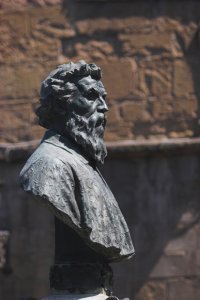Il genio emendato: Benvenuto Cellini tra letteratura popolare e scolastica nel secondo Ottocento italiano
Abstract
Since the end of the 18th century, Benvenuto Cellini embodied an ideal of artist at the same time disreputable and fascinating due to his lifestyle excesses. One of the most important works produced by the artist was his own Vita: the text remained unpublished until 1728, particularly because of its contents, considered scandalous by Catholic morality. The Vita contains crucial information about the life of its author, as well as many descriptions of Cellini’s impetuous personality. Once published, the book rapidly became popular in European culture, often deprived of those parts that could be censored (quarrels, murders, imprisonment, inappropriate sexual intercourses, ritual practices that could be branded as heresy). Although in French popular literature Cellini was presented as a romantic hero, in Italy the Vita was subject to various forms of censorship, depending on its destination. The second part of this essay focusses on how Cellini entered the schools of the newly unified Italy thanks to the initiative of Oreste Bruni, an almost forgotten author. As a result, the artist was transformed into a model for pupils, encouraged to capture the nature of a skilled craftsman whose footsteps should be followed to renew the glory of the Italian genius.

Downloads
Pubblicato
Come citare
Fascicolo
Sezione
Licenza
Copyright (c) 2023 Elephant & Castle

TQuesto lavoro è fornito con la licenza Creative Commons Attribuzione 4.0 Internazionale.





